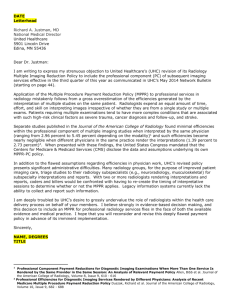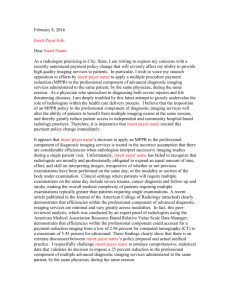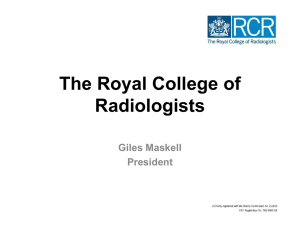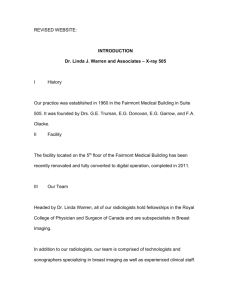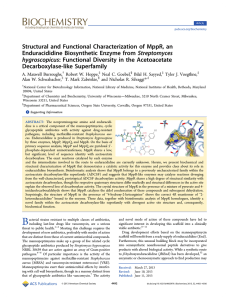Month Date, Year Ms. Marilyn Tavenner Acting Administrator
advertisement
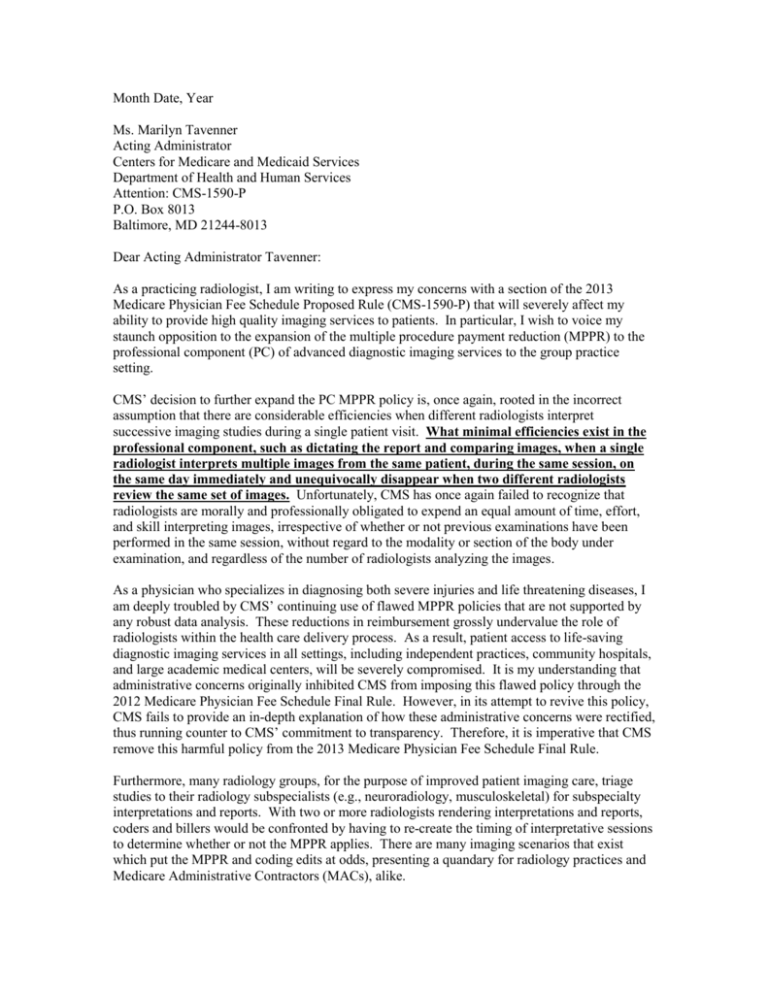
Month Date, Year Ms. Marilyn Tavenner Acting Administrator Centers for Medicare and Medicaid Services Department of Health and Human Services Attention: CMS-1590-P P.O. Box 8013 Baltimore, MD 21244-8013 Dear Acting Administrator Tavenner: As a practicing radiologist, I am writing to express my concerns with a section of the 2013 Medicare Physician Fee Schedule Proposed Rule (CMS-1590-P) that will severely affect my ability to provide high quality imaging services to patients. In particular, I wish to voice my staunch opposition to the expansion of the multiple procedure payment reduction (MPPR) to the professional component (PC) of advanced diagnostic imaging services to the group practice setting. CMS’ decision to further expand the PC MPPR policy is, once again, rooted in the incorrect assumption that there are considerable efficiencies when different radiologists interpret successive imaging studies during a single patient visit. What minimal efficiencies exist in the professional component, such as dictating the report and comparing images, when a single radiologist interprets multiple images from the same patient, during the same session, on the same day immediately and unequivocally disappear when two different radiologists review the same set of images. Unfortunately, CMS has once again failed to recognize that radiologists are morally and professionally obligated to expend an equal amount of time, effort, and skill interpreting images, irrespective of whether or not previous examinations have been performed in the same session, without regard to the modality or section of the body under examination, and regardless of the number of radiologists analyzing the images. As a physician who specializes in diagnosing both severe injuries and life threatening diseases, I am deeply troubled by CMS’ continuing use of flawed MPPR policies that are not supported by any robust data analysis. These reductions in reimbursement grossly undervalue the role of radiologists within the health care delivery process. As a result, patient access to life-saving diagnostic imaging services in all settings, including independent practices, community hospitals, and large academic medical centers, will be severely compromised. It is my understanding that administrative concerns originally inhibited CMS from imposing this flawed policy through the 2012 Medicare Physician Fee Schedule Final Rule. However, in its attempt to revive this policy, CMS fails to provide an in-depth explanation of how these administrative concerns were rectified, thus running counter to CMS’ commitment to transparency. Therefore, it is imperative that CMS remove this harmful policy from the 2013 Medicare Physician Fee Schedule Final Rule. Furthermore, many radiology groups, for the purpose of improved patient imaging care, triage studies to their radiology subspecialists (e.g., neuroradiology, musculoskeletal) for subspecialty interpretations and reports. With two or more radiologists rendering interpretations and reports, coders and billers would be confronted by having to re-create the timing of interpretative sessions to determine whether or not the MPPR applies. There are many imaging scenarios that exist which put the MPPR and coding edits at odds, presenting a quandary for radiology practices and Medicare Administrative Contractors (MACs), alike. CMS must recognize that clinical settings where patients require multiple examinations during the same session include severe trauma, cancer diagnosis and follow-up as well as stroke, thus making the overall medical complexity of patients requiring multiple examinations typically greater than patients requiring single examinations. The findings of a June 2011 study published in the Journal of the American College of Radiology concluded that efficiencies within the professional component of advanced diagnostic imaging services are minimal and vary greatly across modalities. In fact, this peer-reviewed analysis, which was conducted by an expert panel of radiologists using the American Medical Association Resource-Based Relative Value Scale Data Manager (AMA RVS) database, demonstrates that efficiencies within the professional component could account for a payment reduction ranging from a low of 2.96% for computed tomography (CT) to a maximum of 5.45% for ultrasound. I respectfully challenge the agency to produce comprehensive, statistical data that validates its decision to further expand the PC MPPR to the group practice setting. I appreciate the opportunity to voice my opposition to this section of the 2013 Medicare Physician Fee Schedule proposed rule. Sincerely, First Name Last Name, MD, FACR (if applicable)
